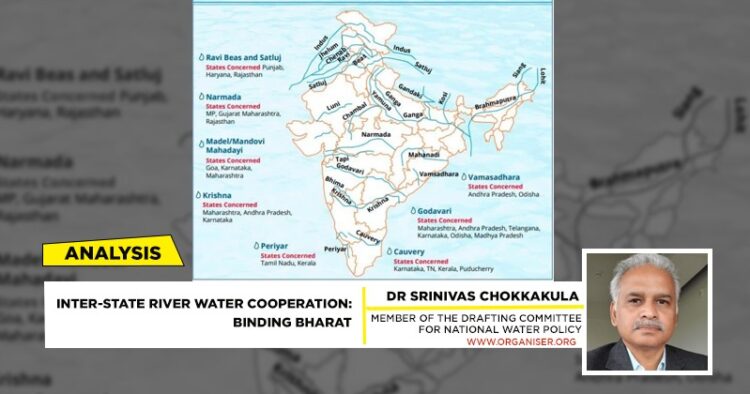Inter-State river water disputes, whenever they emerge or recur and escalate, turn into national spectacles. The episodes often consume and occupy the entire State machinery including the judiciary like the recent Cauvery dispute escalation did in 2023. The inter-State and Centre-State relations are strained and put to test. The prophecies of “water wars” are invoked, triggering projections of destabilising Indian Union.
These projections and imaginations, unfortunately, reflect a myopic view produced by a skewed discourse. There are 192 inter-State river water sharing agreements, according to a recent updated compilation in 2021 by the Central Water Commission (CWC) in collaboration with the Ministry of Jal Shakti (MoJS) Research Chair at the Centre for Policy Research (CPR), New Delhi. This does not receive its due attention in the discourse. In contrast, there have been nine disputes since Independence and after the enactment of the Inter-State River Water Disputes Act 1956 (IRWDA 1956). These nine disputes dominate the discourse about inter-State water sharing.
Cooperation Is the Mantra
The distorted discourse, focused on disputes, perpetuates the ill-informed narratives of destabilising the Indian Union. Instead, the cooperation offers a more compelling counter-perspective of how inter-State rivers integrate India. The cooperation agreements over river waters embody the indispensable interdependencies bonding States in India.
The inexplicable attention to conflicts obscures the cooperation and the forces of integration it encompasses. Sadly, this extends to scholarship as well. While there are thousands of publications on disputes, the seven-decade long scholarship has produced just three respectable papers on the remarkable track record of cooperation!
No wonder the policymaking, too, shows similar skewed responses. The IRWDA 1956 for resolving disputes was amended more than eight times to respond to the challenge of disputes resolution. On the other hand, the other legislation meant to enable cooperation enacted in the same year, the River Boards Act 1956 (RBA 1956) has not been amended even once, nor was it ever used to create any river boards!
In the interest of India’s long-term water security interests, it must shift its focus away from conflicts to cooperation and invest in creating a robust policy and institutional ecosystem for enabling and sustaining cooperation. This must begin with acknowledging the rich history of inter-State cooperation.
















Comments